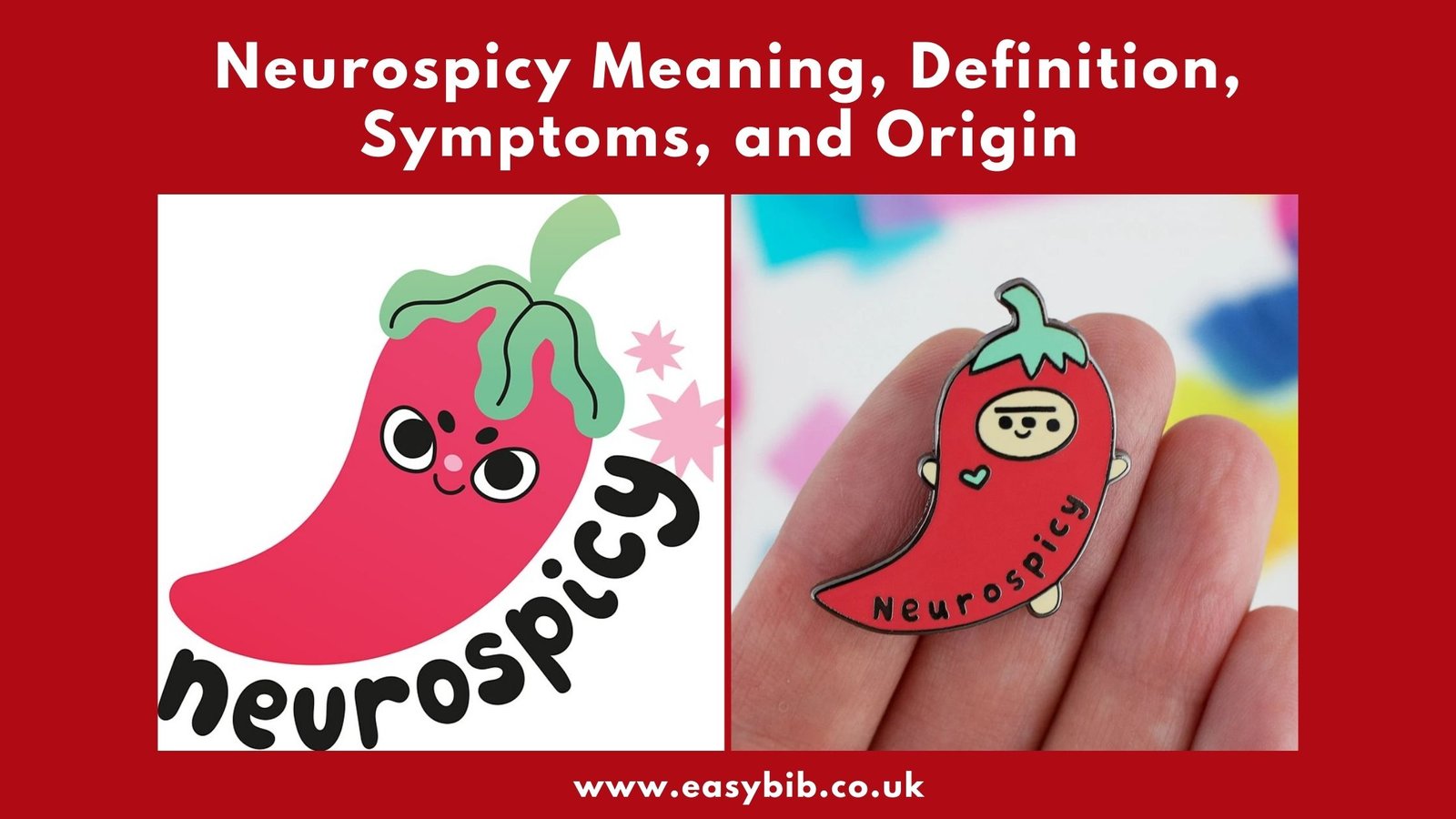Neurospicy Meaning, Definition, Symptoms, and Origin

Neurospicy is a term that has become popular in recent years, especially online. People use it to describe brains that work differently from what society calls “typical.” The word is playful and light, yet it carries real meaning. Many who identify as autistic, ADHD, dyslexic, or otherwise neurodivergent choose to use it. They see it as a way to embrace their identity with pride and humor.
Instead of relying only on clinical language, neurospicy gives them a softer, friendlier way to explain themselves. The rise of the word shows how language can change to reflect community needs and how people continue to find new ways to define who they are.
Understanding the Term Neurospicy
Neurospicy is a modern term used to describe people whose brains work differently from what society often calls “typical.” It is not a medical or scientific label. It is a playful and positive way to talk about neurodivergence. Many people who identify as autistic, ADHD, dyslexic, or having other neurological differences use it. The word combines “neuro” for the brain and “spicy” as a metaphor for uniqueness and intensity. This makes it easy to understand while also being fun and approachable.
The rise of the term reflects how communities are reclaiming language. For years, medical words often carried stigma. They focused on deficits rather than strengths. Neurospicy flips the script. It offers a fresh way for people to describe themselves without the weight of clinical terms. It helps people talk about their experiences with pride and humor.
Origins of Neurospicy
Community Roots
The word began in online communities where neurodivergent people shared experiences. It spread quickly through social media, especially on platforms like TikTok, Reddit, and Instagram. There is no single creator of the word. It grew naturally as part of collective expression. People adopted it to replace terms like “mild autism” or “high-functioning,” which often felt dismissive. Neurospicy instead highlights individuality and self-acceptance.
From Joke to Identity
At first, neurospicy was often used as a joke. It was a lighthearted way to explain being different without needing long explanations. Over time, though, the term became more serious. It became part of identity language for many. People began using it proudly to define themselves. It reflects the shift from shame to empowerment in the neurodivergent movement.
Why People Use Neurospicy
Clinical labels like autism or ADHD are important. But they can feel heavy or intimidating in casual conversation. Neurospicy offers a softer alternative. It allows people to open up about who they are without fear of judgment. Saying “I’m neurospicy” can break the ice in social situations. It communicates difference in a way that feels approachable and even warm.
For many, neurospicy is more than just slang. It is a badge of pride. It expresses creativity, resilience, and individuality. Instead of hiding or downplaying their differences, people celebrate them. By choosing a word like neurospicy, they reclaim control over their identity. This shift is powerful. It helps transform how society sees neurodivergence.
READ MORE
Neurospicy Symptoms and Experiences
Neurospicy does not describe a specific medical condition. Instead, it covers a wide range of traits connected to neurodivergence. These can include difficulty focusing, sensory sensitivity, strong emotional responses, or unique learning styles. Someone may process information quickly in one area but struggle in another. They might notice details others miss, or they may need extra support in social situations.
Every neurospicy person is different. Some are autistic. Some have ADHD. Others may live with dyslexia, dyspraxia, or other neurological variations. The shared experience is that their brains operate differently from the “neurotypical” majority. Using neurospicy is a way to unite these diverse experiences under one playful label.
Criticisms of Neurospicy

Concerns About Trivialization
Not everyone supports the use of neurospicy. Some argue that it trivializes serious challenges faced by neurodivergent people. They feel the word makes the experience sound like a joke. For them, clinical terms are more accurate and respectful.
Cultural Sensitivity
Others point out that the word “spicy” can carry cultural undertones. In some contexts, it has been used as a stereotype, especially toward women of color. This makes the term complicated. While many embrace it, others reject it because of these associations. Language is never neutral, and words can carry unintended meanings.
Balancing Fun and Seriousness
The debate shows how complex identity language can be. On one hand, neurospicy empowers people to celebrate their differences. On the other hand, it risks minimizing real struggles. The key is choice. People should be free to describe themselves in the way that feels best. Respecting those choices is what truly matters.
Real Life Examples
Writers, activists, and even celebrities have used neurospicy to describe themselves. For example, authors in the autism community use it as a positive identity marker. On social media, creators share videos explaining their “neurospicy” routines or challenges. Some use it humorously, like saying they have a “neurospicy brain day.” Others use it seriously, as a way to connect with people who understand.
Public figures have also embraced the word. It helps normalize the idea that different brains are valuable. When people in the spotlight call themselves neurospicy, it sends a message. It shows that neurodivergence is not something to hide. It can be part of a proud identity.
READ MORE
Final Thoughts
Neurospicy is more than a catchy phrase. It represents a cultural shift in how people talk about neurodivergence. It rejects outdated labels that reduce people to symptoms. Instead, it offers a playful, empowering alternative. It is not perfect, and it has its critics. But for many, it provides a way to embrace identity with pride and humor.
In the end, the term is about choice. Some will find it uplifting. Others may prefer clinical accuracy. Both are valid. What matters most is respect. Each person has the right to define their own experience. Neurospicy is one of many words that help people do just that.
